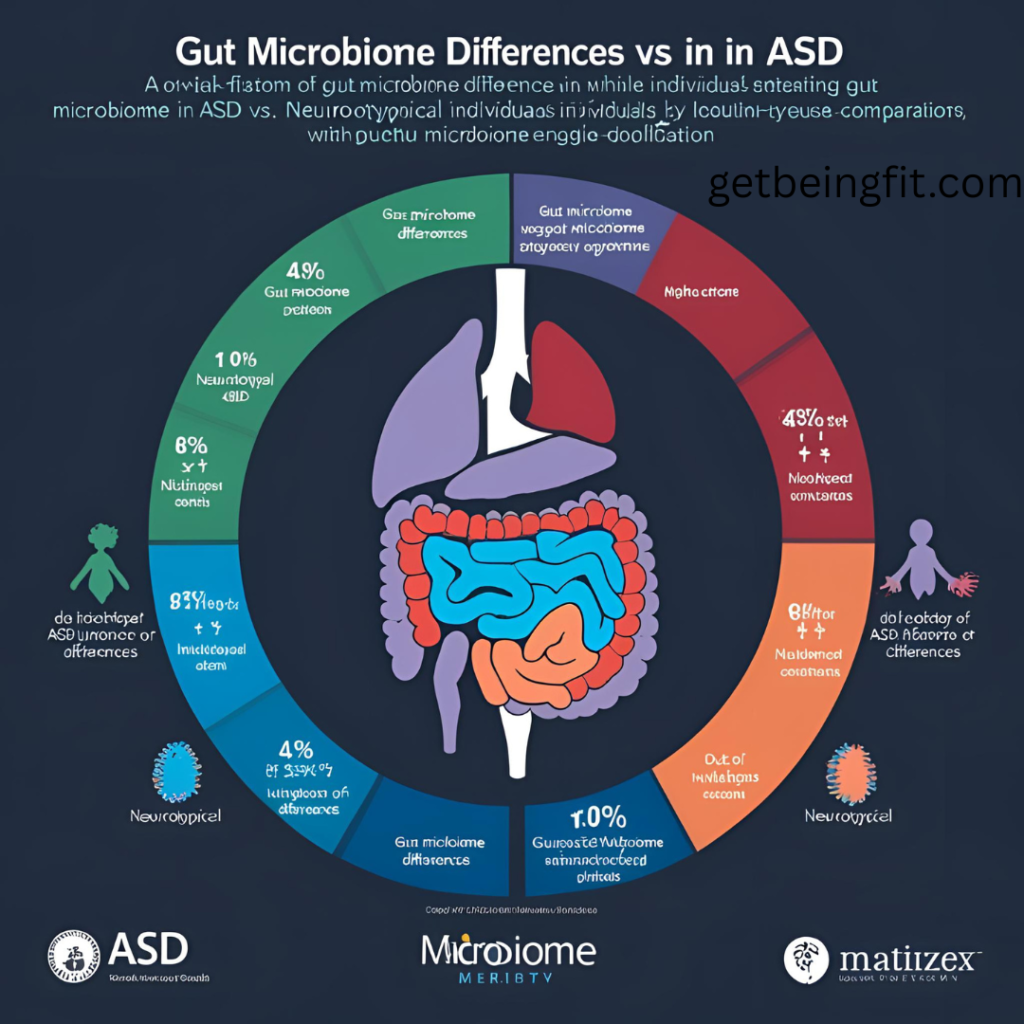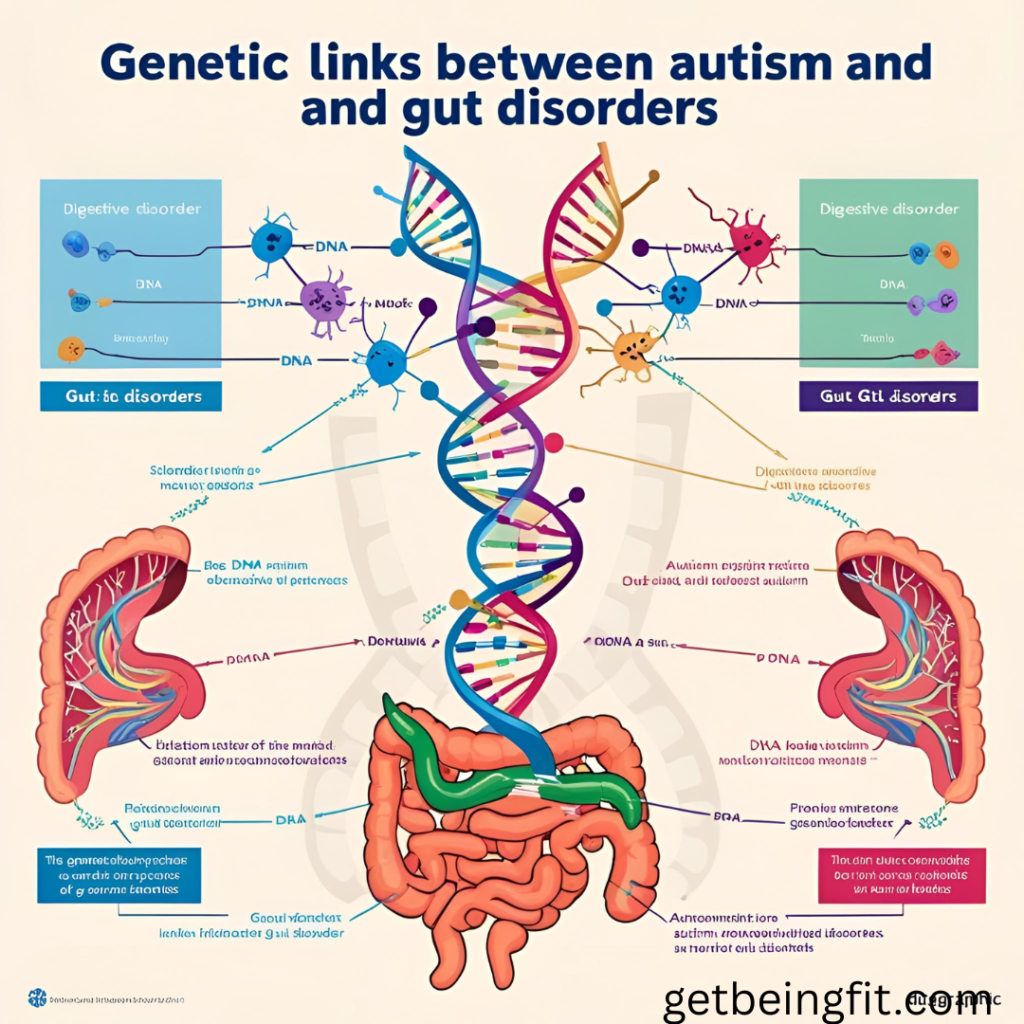Discover the critical connection between gastrointestinal issues and Autism Spectrum Disorder (ASD). Learn about symptoms, research-backed treatments, and dietary strategies to improve gut health in autistic individuals.
“How gut health impacts autism—science-backed insights for better digestion and behavior.”
📌 Introduction
Gastrointestinal (GI) issues are up to 4 times more common in individuals with Autism Spectrum Disorder (ASD) than in neurotypical populations. Studies reveal that 70-90% of autistic children suffer from digestive problems like chronic constipation, diarrhea, reflux, and abdominal pain. These issues don’t just cause discomfort—they can worsen behavioral symptoms, including irritability, sleep disturbances, and social withdrawal.
Understanding the gut-brain axis in autism is crucial for effective management. This guide dives deep into:
- The science behind gut-brain communication in ASD
- Most common GI disorders in autistic individuals
- How gut bacteria influence behavior and mood
- Evidence-based treatments (diet, probiotics, medical interventions)
- Practical tips for parents and caregivers

🔬 The Gut-Brain Axis: How Digestive Health Affects Autism
The gut-brain axis refers to the bidirectional communication between the digestive system and the brain. In autism, this connection is often disrupted, leading to:
1. Dysbiosis (Gut Microbiome Imbalance)
- Autistic individuals frequently have lower levels of beneficial bacteria (e.g., Bifidobacterium, Lactobacillus) and higher harmful bacteria (e.g., Clostridia).
- A 2021 study in Nature found that fecal microbiota transplants (FMT) improved both GI and behavioral symptoms in autistic children. (PMC8608248)
2. Leaky Gut (Intestinal Permeability)
- A “leaky gut” allows toxins and undigested food particles to enter the bloodstream, triggering inflammation and immune responses that may affect brain function.
3. Serotonin & Neurotransmitter Imbalances
- 90% of serotonin (a mood-regulating chemical) is produced in the gut.
- Gut imbalances may contribute to anxiety, irritability, and sleep issues in ASD.

🚨 Common Gastrointestinal Issues in Autism
Autistic individuals frequently experience:
1. Chronic Constipation (Most Prevalent)
best diet for autistic children.”
- Causes: Low fiber intake, sensory aversions, gut motility issues.
- Effects: Discomfort, aggression, sleep disturbances.
2. Diarrhea & Loose Stools
- Linked to: Food intolerances (gluten, dairy), bacterial overgrowth.
3. Acid Reflux (GERD)
- Symptoms: Heartburn, vomiting, feeding difficulties.
4. Abdominal Pain & Bloating
- Common in: Selective eaters due to limited diets.

🧪 Why Are GI Issues More Common in Autism?
Several scientific theories explain the high prevalence:
1. Genetic & Biological Factors
- Mutations in genes like MET and SERT are linked to both autism and gut dysfunction.
2. Immune System Abnormalities
- Elevated inflammatory markers (e.g., cytokines) are found in autistic individuals with GI issues.
3. Dietary & Sensory Challenges
- Many autistic children avoid high-fiber foods, leading to constipation.

💊 Evidence-Based Treatments for GI Issues in Autism
1. Probiotics & Prebiotics
- Best Strains: Lactobacillus reutter, Bifidobacterium infants.
- Food Sources: Yogurt, kefir, sauerkraut.
2. Dietary Interventions
- Gluten-Free & Casein-Free (GFCF) Diet: Helps some children with leaky gut and inflammation.
- Low-FODMAP Diet: Reduces bloating and gas.
3. Medical Treatments
- For Constipation: Miramax, fiber supplements.
- For GERD: Antacids, PPIs.

🔍 Latest Research & Breakthroughs
- Fecal Microbiota Transplants (FMT): A 2019 study showed 47% improvement in GI symptoms and 24% improvement in autism behaviors post-FMT.
- Omega-3 Fatty Acids: May reduce gut inflammation.
- gut-brain axis in ASD,
📌 Best diets for autistic children with GI issues
👩⚕️ Practical Tips for Parents & Caregivers
- Keep a food-symptom journal to identify triggers.
- Gradually introduce fiber to prevent constipation.
- Work with a gastroenterologist specializing in autism.
- autism and constipation,

✅ Conclusion
Gut health is a game-changer in autism care. By addressing digestive issues, parents can see improvements in behavior, mood, and overall well-being.
🔗 References & Further Reading:

🚀 Help spread awareness! Share this guide with other autism parents.

